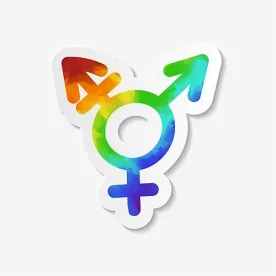On February 18, 2021, U.S. Representative David Cicilline (D-RI) reintroduced the Equality Act (H.R. 5), a bill that would amend federal law (including Title VII of the Civil Rights Act of 1964) to prohibit discrimination on the basis of sexual orientation and gender identity. Although the U.S. House of Representatives passed a nearly identical version of the Equality Act in 2019, the bill never gained traction in the U.S. Senate and died in committee. It is no surprise that the Equality Act has taken the stage once more given that then President-elect Joe Biden said he would work to pass the Equality Act within his first 100 days in office.
The 2019 and 2021 versions of the Equality Act are nearly identical. The current version of the bill expressly states that “existing [f]ederal statutes prohibiting sex discrimination in employment (including in access to benefits), healthcare, housing, education, credit, and jury service also prohibit sexual orientation and gender identity discrimination.” One distinct difference in the new iteration of this legislation appears in the “Findings” section of the 2021 Equality Act, which adds a new reference regarding the need to provide protections for gender nonbinary individuals. Section 2(a)(12) of the bill states:
Discrimination based on sexual orientation includes discrimination based on an individual’s actual or perceived romantic, emotional, physical, or sexual attraction to other persons, or lack thereof, on the basis of gender. LGBTQ people, including gender nonbinary people, also commonly experience discrimination because of sex-based stereotypes. Many people are subjected to discrimination because of others’ perceptions or beliefs regarding their sexual orientation. Even if these perceptions are incorrect, the identity imputed by others forms the basis of discrimination.
Employers may wish to familiarize themselves with the definitions of gender binary (e.g., only male and female genders existing) and gender nonbinary (e.g., genders that do not fall into either male or female).In addition, employers should consider whether their policies, practices, and training comport with the state of the law under the Supreme Court of the United States’ ruling in Bostock v. Clayton County, Georgia (140 S. Ct. 1731 (2020)), as well as the Equality Act if it is enacted into law. In Bostock, the Supreme Court held that the prohibition on employment discrimination because of sex under Title VII inherently includes discrimination because of sexual orientation or transgender status.
Although it seems likely the Equality Act will promptly pass the House (which is expected to vote on it on February 25 or 26) with minimal if any changes and proceed to the Senate, some legislators may query why the Equality Act is needed post-Bostock. The Equality Act would amend Title VII to codify the Court’s core holding in Bostock. By adding sexual orientation and gender identity as specifically protected characteristics under Title VII the bill would ensure no future or contrary reinterpretations of Bostock’s holding and pave a clear path for future U.S. Equal Employment Opportunity Commission (EEOC) guidance on questions the Court did not reach, such as the implications of its ruling on dress codes and single-sex facilities at worksites such as locker rooms and bathrooms. Since some state statutes defer to Title VII’s language and interpretation, amending Title VII may also make state law more clear, including for small employers not covered by Title VII.
Despite significant backing from the business community, including the U.S. Chamber of Commerce and National Association of Manufacturers, the Equality Act will likely be hard-pressed to garner the support of at least 10 Republican senators. Assuming all 50 Democratic senators are in favor of the Equality Act (which seems likely to be the case), 10 Republican senators would need to join them to overcome a Senate legislative filibuster. The bill might present an interesting test case for the viability of the filibuster.




 />i
/>i
